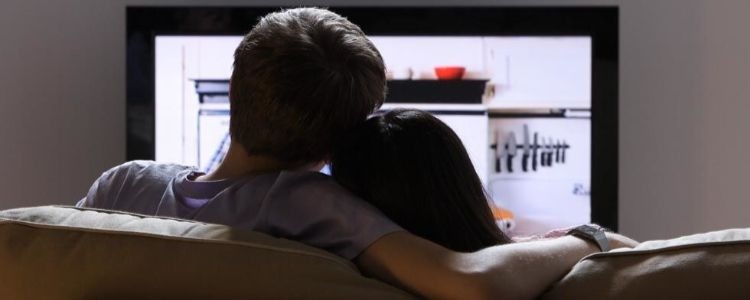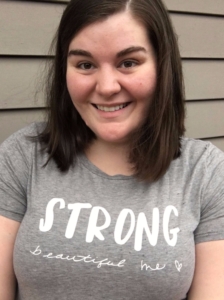Why the Phrase “Binge-Watching” is Triggering
Something that really bothers me is when people say, “I’m going to binge-watch this show all weekend.” Although the word binge means to indulge in an activity to excess, there is a significant difference between binge eating and watching an entire season of a new Netflix show in one sitting. As someone who has a history of binge eating disorder, those comments feel insensitive.
Since the term binge-watching is frequently heard in conversations and displayed around the media, it makes sense that so many people are saying it now. The word is typically intended to make someone feel guilty or ashamed. However, eating disorder terms such as restricting and purging are not frequently used in conversation or seen in the media. The reason for that is because binge eating disorder is taken far less seriously than anorexia or bulimia.
Life is full of potentially triggering situations, and it can be difficult to avoid them in our culture. Many times when I log into Netflix I am doing so to relax. Sometimes I use Netflix as a coping skill to distract myself from a bingeing urge. However, when I scroll through Netflix and see categories such as “Binge-worthy TV Dramas” and “Binge-worthy TV Shows,” I am reminded of the exact thing I am trying to avoid, and that makes me feel upset and uncomfortable.
In Demi Lovato’s recent documentary Simply Complicated, she shared that she doesn’t feel as though she has fully conquered her eating disorder. Demi said, “The less I have to think about food, the easier it is for me to go about having a normal life.” To be honest, sometimes I feel the same way. Food is everywhere in our culture – in advertisements, conversations, social gatherings, etc., and that can make it very difficult to keep my mind off of my eating disorder.
Some people may think I am being too sensitive about people saying “binge” in casual contexts because, after all, it is just a word. The real issue here is that mental illnesses are used as catch phrases for completely unrelated topics far too often. For example, suicide drills in basketball. They have nothing to do with the pain someone endures while experiencing suicidal thoughts. Basketball drills have nothing to do with the intense sadness people feel when they have lost someone to suicide. That term makes light of a very serious mental health topic, which is insensitive.
People who binge-watch Netflix are making a conscious choice about their behavior, whereas, someone struggling with binge eating disorder has a much more complicated experience. When I have a strong bingeing urge, my mind is being flooded with thoughts. Part of me wants to binge because I know that it will numb the emotional pain and bring me comfort for a little while. Another part of me is reminding myself of the guilt and shame I will feel afterwards; that part is giving me a list of coping skills to try as alternative methods to food. Another part of me is incredibly frustrated that I keep having these bingeing urges; that part sometimes wishes that I could have a less disordered relationship with food. It is not at all a simple decision when I binge. Sometimes it doesn’t even feel like a choice. Sometimes the reason I binge is because I’m tired of trying to fight off the incredibly strong urge not to.
There is nothing similar about the thought process that goes into the decision to binge eat compared to binge-watch. I do not expect everyone to stop using the phrase “binge-watching,” but I do ask that people at least take the time to think about how that word has a deeper meaning to some people. My eating disorder behavior is not a phrase to describe your Netflix watching habits. It is not some funny catch phrase. It is a very significant aspect of some eating disorders, and it needs to be taken more seriously.
Emily Locke is a college student, writer, and dancer. She is from Portland, OR but recently began studying as a sophomore at North Carolina State University, and plans to major in English with a creative writing concentration and minor in Psychology. She has battled mental illnesses from a young age, and as a result is very passionate about raising awareness for eating disorders, anxiety, and depressive disorders, and promoting a positive body image. She hopes to someday be a published author and eating disorder activist. To read more of her writing and follow her journey, check out her blog.





